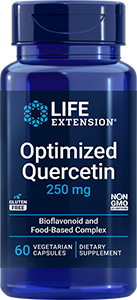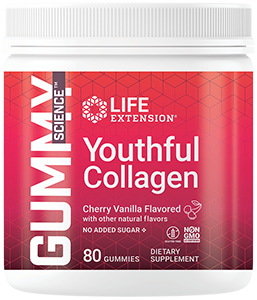
Newsletter
Newsletter
Prostate cancer patients who practiced yoga had better quality of life, antitumor response

Yoga benefits men with prostate cancer, according to a report shared at the 2021 American Urology Association Annual Meeting. Participants who practiced yoga experienced improvements in antitumor immune response as well as reduced fatigue and improvements in physical, sexual, functional and social wellbeing quality of life scores. The study was published in the September 2021 Issue Supplement 3 of the Journal of Urology.1
“Yoga improves health-related quality of life in patients with several types of cancer, but its benefits have not been studied in prostate cancer,” wrote Dharam Kaushik, MD, and associates at the University of Texas Health, San Antonio. “We performed a phase II clinical trial to evaluate the impact of yoga on quality of life and its effects on immune cell status and cytokine levels in men undergoing radical prostatectomy.”
The randomized trial enrolled 30 men with newly diagnosed localized prostate cancer (confined to the prostate gland) who were scheduled for surgical prostate removal. Half of the men performed 60 minutes of yoga twice per week for 6 weeks prior to the surgery and 3-6 weeks after the surgery, while the remainder of the men received standard care.
Self-reported quality of life was evaluated via questionnaires administered before the beginning of the yoga sessions, before surgery, and six weeks after surgery. Blood samples collected during these time points were analyzed for immune cell status and cytokine levels.
The trial participants who practiced yoga reported improvements in sexual, functional, physical and social aspects of wellbeing, as well as a reduction in fatigue. They also had higher numbers of immune cells known as CD4+ and CD8+ cells, improvements in markers of natural killer cell function, and a lower number of regulatory T-cells and myeloid-derived suppressor cells, both of which are associated with decreased anti-tumor activity. The yoga group also had decreased levels of certain cytokines that promote inflammation.
“Perioperative yoga exercise improved quality of life, promoted an antitumor immune response, and attenuated inflammation in men undergoing prostatectomy,” the authors concluded. “Yoga is feasible in this setting and has benefits that require further investigation.”
Products
Apply What You've Learned: Prostate Cancer
- Prostate cancer is the most common cancer among U.S. men.2 The disease is highly treatable when caught early. In fact, if prostate cancer is diagnosed at a localized or regional stage, five-year survival is 100%.3 A prostate-specific antigen (PSA) blood test can aid in early detection.
- It is important for men to find out whether they have a family history of prostate cancer, which can affect their risk of the disease. Men can additionally be tested for the presence of gene mutations that increase prostate cancer risk.
- There is evidence that a Western dietary pattern, characterized by a high intake of red meat, processed meat, eggs and sweets, is associated with a significantly greater risk of prostate cancer compared to a healthy dietary pattern consisting of fruit and vegetables, fish and poultry and whole grains.4
- Specific foods, including cooked tomatoes, cruciferous vegetables (broccoli, cauliflower, cabbage, kale), fish, and healthy fats (olive oil, nuts and omega-3 fatty acids) have been associated with a decreased risk of prostate cancer progression.5
References
- Kaushik D et al. J Urol. 2021 Sep;206(Suppl 3):e1175-e1176.
- “Prostate cancer—patient version.” National Cancer Institute. https://www.cancer.gov/types/prostate
- “Cancer stat facts: prostate cancer.” National Cancer Institute. https://seer.cancer.gov/statfacts/html/prost.html
- Fabiani R et al. Nutrients. 2016 Oct 12;8(10):626.
- Peisch SF et al. World J Urol. Jun 2017;35(6):867-874.
Featured Life Extension Magazine® Article
Promising Strategies in the Fight Against Pancreatic Cancer, by David Marcus
Pancreatic cancer is the third leading cause of cancer deaths in the U.S. It is an aggressive cancer that frequently remains undetected in its early stages. Although pancreatic cancer diagnoses have been increasing each year, healthy dietary and lifestyle practices can lower the risk of developing this often-deadly malignancy.
Smoking, excessive alcohol intake, obesity and consuming a diet high in animal and saturated fats have been linked with a greater risk of developing pancreatic cancer. Being diagnosed with diabetes within the past three years has been associated with a four to seven times greater risk of developing pancreatic cancer compared to nondiabetic status.
Research suggests that a healthy intake of vitamin D, omega-3 fatty acids, carotenoids, green tea catechins and magnesium may lower pancreatic cancer risk.
What's Hot
Health Concern
Study suggests benefit for luteolin against prostate cancer
The August 2020 issue of journal Carcinogenesis reported a role for the antioxidant flavonoid luteolin against prostate cancer, including castration-resistant disease.

Prostate Cancer Treatment
In clinical trials, lycopene and green tea supplements have been shown to benefit men with prostate cancer.
Related Life Extension Magazine® Articles

Outbreak of Metastatic Prostate Cancer
Starting in 2008, a government group recommended that most men not undergo annual PSA screening. The impact of this misguided policy is increasing numbers of men being diagnosed with advanced-stage prostate cancer. This tragedy was preventable if early-stage disease had been detected via PSA screening.

Dietary Approaches for the Prevention and Treatment of Prostate Cancer
The prostate glands of aging men often harbor malignant cells, but the right diet can prevent them from progressing to clinically-relevant prostate cancer.
Our History
DHEA for hormone balance. Melatonin for sleep. Sound familiar? Once, these ideas were the cutting edge of nutritional science. Learn how Life Extension made them mainstream.
Learn More


